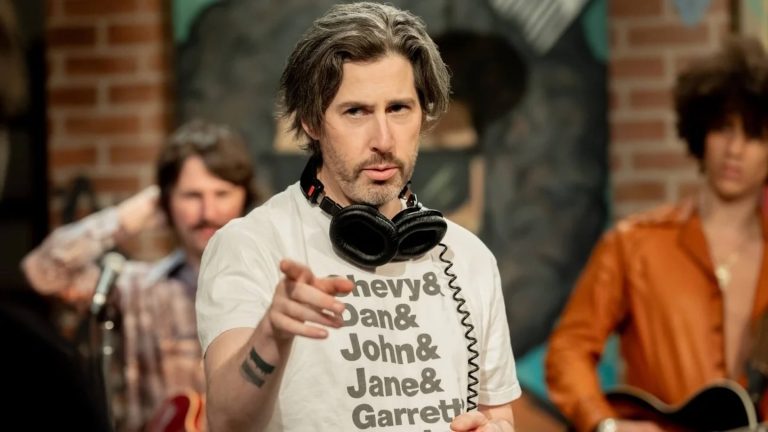
Is the F-word necessary in dialogue? What does it accomplish? When and where should screenwriters utilize it?
We covered the idea of writing with speculative film ratings in mind within our post Should Screenwriters Write with an MPAA Rating in Mind?
We know that G-rated films can usually contain language beyond polite “swears” — heck, rats, dang, darn, shoot, etc. — but never with profanity.
PG-rated films are allowed mild language — words like damn and hell — while PG-13 rated films may contain stronger language, including the word shit and its variations. Depending on the target audience — rather than a film’s actual age rating — one of the harsher sexually-derived words — an F-bomb — can be used, provided that the word is not used with sexual connotation.
If the F-word is spoken more than once or used in sexual context, it is routine today for a film to receive an R rating. The variation "motherf***er" cannot be spoken at all in films rated lower than R because it is considered too offensive. There have been multiple exceptions to the “Two F-word” ruling in the past, but generally, the rule still applies to most films.
The video essay by Jack Nugent on the use of the F-word in cinema offers some excellent insight into how and when such profanity is useful, and when it is useless. We take the lessons we learned from his video essay and expand on them to offer screenwriters some insight as to what the F-word accomplishes in screenplays and how it should and shouldn't be used.
Society Has Not Been Desensitized to Profanity
Sure, most movies in the theaters today that are rated PG-13 and above are full of strong and sometimes harsh language in the form of profanity, but that doesn't mean we've been desensitized. Swear words, when used effectively, can still offer that taboo shock value.
Case in point — the F-word. Listen to how it is used in the below scene from Fight Club.
Nugent makes an outstanding point that the shocking scene — which divulges the nature of Marla and what type of character she is in the film — wouldn't have the same effect if the writer had chosen to have her character say "made love" or any diluted variation of the F-bomb that is used.
In the build-up to that scene, Tyler is sharing how unusual and disturbing Marla really can be. The usage of the F-bomb matched with the age she is referring to is disturbing. We are meant to be shocked — and we are meant to be shocked in order to showcase the nature of Marla as a character. Without that word, the impact is lessened.
So, yes, swear words can still have an effect on an audience.
Characters Who Say F*** Are Often in Charge of the Scene
The F-bomb isn't just used to shock people.
The word is utilized as a form of domination in place of outright violence and physical force. It packs a punch in society as one of the harshest words of profanity. That taboo aspect carries into film as well. When the F-word is used, there's an impact that is made. The person hearing it knows that whoever is using it often means business.
In Fargo, Jerry's customer has had enough. At first, he seems in control of the situation — pulling a sleazy salesman move on his two customers. But the moment the husband drops an F-bomb, the momentum shifts in his favor.
Many times, the F-word is used by characters that are clearly in control of the scene.
As Jerry talks to hired thugs Carl and Gaear, once again he comes in trying to take the authoritative stance within the scene. As the two listen to his plan and the details thereof, once they start to sling F-word profanity at him, Jerry is rattled. He quickly takes a submissive role within the scene.
Later on, Carl is trying to get out of paying for a brief drive through a parking structure. The parking attendant is technically the authority figure as he tells Carl that despite the fact that Carl changed his mind about parking within the structure, he'll still have to pay. Carl tries to reason with him, but the parking attendant politely stands his ground. However, Carl takes charge as soon as he begins to throw profanity in the form of the F-word at the attendant.
In Quentin Tarantino's Pulp Fiction, it's clear that Jules dominates a whole room full of characters. At first, not one of them uses profanity because Jules is clearly in charge. When Brett tries to talk himself and his friends out of this hole they've dug, he drops the F-word. Jules immediately uses a violent act to take back the control of the scene and then unleashes multiple profanities to make sure that they have his undivided attention.
In the same film, Mr. Wolf calmly explains to Vincent and Jules what they need to do. He's a cool cat under pressure and doesn't drop a single F-bomb — until Vincent unwisely challenges his authority by saying, "A please would be nice."
Two F-bombs later — ending with "So pretty please, with sugar on top, clean the f***ing car" — Mr. Wolf has clearly cemented his dominance over Vincent.
And finally, we go to another Tarantino script —Reservoir Dogs.
We have two levels here. First and foremost, the film is littered with plenty of profanities — especially the grand f***ing daddy of them all. The F-word is used roughly 272 times throughout the film. Nearly every character uses it. Since the film is comprised of characters that are all A-types challenging each other in almost each and every scene, there are plenty examples of the word being used by characters that at least think they are in charge of any given scene at hand.
But one that Jack Nugent's video essay pinpoints best is the classic moment where Mr. White (Harvey Keitel) scolds the big boss.
While many F-bombs were dropped, Mr. White's stands out because it is directed directly to their boss, Joe. Mr. White takes Joe's address book from him, annoyed that he keeps muttering different names while trying to remember one in particular.
"Give me that f***ing thing... I'm sick of f***ing hearing it..."
This showcases that Mr. White has some form of authority among the other thieves present. He's the only one that ever speaks to Joe in that way. Even when the hot-headed Mr. Pink (Steve Buscemi) unleashes F-words to everyone else that challenges his view on tipping, as soon as Joe questions him, Mr. Pink submits his authoritative stance.
So clearly the F-word is something that screenwriters can use to showcase who is in charge of each scene. The use of it can swing the momentum each character has — quickly.
And it can play in many different forms of dominance and control.
When used in sexual connotation, the usage of the word plays in many different ways with many different effects. It can be erotic, sleazy, daring, dominant, or degrading.
Regardless, it can be an excellent way to showcase a character's control of a scene or lack thereof.
Sometimes It's Just About Emotion
When our emotions are elevated, we get worked up. When we get worked up, our communication is just as elevated as we use stronger words to communicate how excited, frustrated, angry, or sad we are.
The F-word is arguably the strongest profanity we can conjure (there is another one that we won't mention here). As we mentioned before, it packs a punch.
The dialogue that accompanies an F-bomb is enhanced because of that attachment. It multiplies whatever point a character is trying to make ten fold.
I'm tired vs. I'm f***ing tired.
It was hilarious vs. It was f***ing hilarious.
He's an idiot vs. He's a f***king idiot.
I'm so scared vs. I'm so f***ing scared.
I love you vs. I f***ing love you.
It can make a line funnier. It can make a line more intimidating. It can make a line more sympathizing.
When the F-word is used to communicate and accentuate an emotion, it can pack its own kind of punch and give more meaning to the dialogue.
When NOT to Use It
We've covered the general rules and regulations for the use of the F-word in screenplays. A profanity-driven script will never be picked up by production companies and studios that deal in G and PG fare. Any more than a couple of F-words (or less, depending on the context), and the PG-13 demographic is gone as well. So in those cases, the answer to when not to use it is pretty obvious.
As mentioned before, overusing the word can have a drastic effect on the dialogue. It can lessen the impact of a moment you are trying to build to. It can change how the audience feels about a character as well.
According to a 2017 Harris poll that The Hollywood Reporter featured, the F-word is one of three that risk losing audience members.
“Jesus Christ” as a curse word is the biggest offense, with 33 percent of the general public saying they’d be less likely to see a movie if they knew beforehand of that particular piece of dialogue. “Goddam” was second at 32 percent. The F-word was third with 31 percent, which means that it is second only to blasphemy in the eyes of many.
So using it loosely could clearly affect the audience.
While many will say that we live in a time where more and more people are more and more easily offended, it's not about that. It's about how your choices within your dialogue affect the story, the characters, and the overall experience of either reading your script or watching it unfold on the screen.
Use it as much or as little as you want — but it's important to remember and understand how the usage of that word affects your story, your characters, and your audience.
There's a purpose for profanity in film. We may be desensitized by the words on the lower end of the profanity totem pole, but the F-word still causes a certain reaction. Because of this, many writers use it for that sole purpose — to cause a reaction. But when they overuse it within a screenplay, then yes, the impact that the word could make when used wisely is quickly diluted.
Which means that it's not when or how often you use it that matters, but how you use it. Otherwise, it's lost any and all impact.
If you want to show a character's dominance within a scene, go for it. If you want to enhance the emotion of any given line of dialogue, throw it in there.
But please, when you do decide to use it, use it fucking wisely.
Ken Miyamoto has worked in the film industry for nearly two decades, most notably as a studio liaison for Sony Studios and then as a script reader and story analyst for Sony Pictures.
He has many studio meetings under his belt as a produced screenwriter, meeting with the likes of Sony, Dreamworks, Universal, Disney, Warner Brothers, as well as many production and management companies. He has had a previous development deal with Lionsgate, as well as multiple writing assignments, including the produced miniseries Blackout, starring Anne Heche, Sean Patrick Flanery, Billy Zane, James Brolin, Haylie Duff, Brian Bloom, Eric La Salle, and Bruce Boxleitner. Follow Ken on Twitter @KenMovies
For all the latest ScreenCraft news and updates, follow us on Twitter, Facebook, and Instagram.
Tags
Get Our Screenwriting Newsletter!
Get weekly writing inspiration delivered to your inbox - including industry news, popular articles, and more!



























